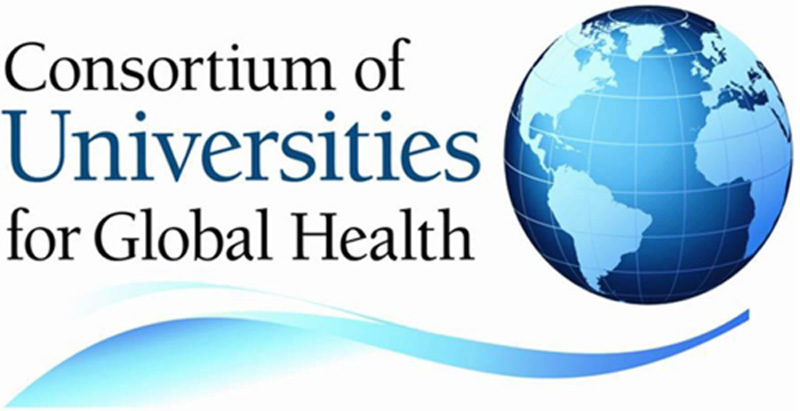Free online courses:
- Antenatal Care orients participants to key concepts in antenatal care (ANC), including the importance of focused (goal-directed) ANC.
- A Total Market Approach to Family Planning Services examines how to identify how a TMA [Total Market Approach] can lead to a healthy market for FP [Family Planning] services and understand the roles of different sectors within that healthy market.
- Cervical Cancer Prevention (Low – Resource Settings) provides essential knowledge about the burden of cervical cancer; effective and low-cost tools available to detect and treat precancerous lesions; information about the human papillomavirus (HPV) vaccine; links between HIV, HPV, and cervical cancer; and proven program approaches applied in low-resource settings to combat this preventable killer.
- Childbirth: A Global Perspective discusses maternal and newborn health in the developing world and the processes that affect birth.
- Community-Based Family Planning introduces the essential elements for designing and implementing successful, sustainable CBFP [Community-Based Family Planning] programs.
- Contracting for Family Planning and Reproductive Health Services introduces the essential steps and concepts needed for purchasers (such as governments and insurance companies) and providers to evaluate, negotiate, and manage contracts for family planning and other health services.
- Creating an Enabling Environment for Young Vulnerable Children and Their Caregivers explores considerations for policymakers and how to create policies that support programming for young vulnerable children and their caregivers.
- Emergency Obstetric and Newborn Care focuses on the technical and programmatic considerations for interventions that address emergency obstetric and newborn care.
- Family Planning 101 provides the basic need-to-know information relevant to voluntary FP [Family Planning] programs and services today.
- Family Planning and HIV Service Integration examines the benefits of integrating family planning (FP) into HIV services and provide guidance on how to establish and sustain the delivery of integrated FP/HIV services.
- Family Planning Programming – Elements of Success is based on the issue of Population Reports, Elements of Success in Family Planning Programming, this course summarizes the core factors contributing to success in family planning programming, as identified by family planning professionals around the world.
- Female Disadvantage examines the female disadvantage in East and South Asia.
- Female Genital Mutilation/Cutting (FGM/C) is an overview of FGM/C (Female Genital Mutilation/Cutting) and examples of interventions that have worked—as well as those that have not worked—to encourage the abandonment of the practice.
- Global Adolescent Health examines approaches to understanding the factors that affect adolescent health and well-being around the world.
- Healthy Timing and Spacing of Pregnancy focuses on Healthy Timing and Spacing of Pregnancy (HTSP) practices.
- HIV and Infant Feeding Counselling: A training course discusses how to work with breastfeeding mothers and infants affected by HIV.
- Hormonal Methods of Contraception provides information that program managers and clinic staff can use to improve the quality of care in providing hormonal contraceptive methods.
- INTERGROWTH-21st course on maternal, fetal and newborn growth monitoring examines the methodology of maternal, fetal and newborn growth monitoring and the application of the INTERGROWTH-21st international growth standards to determine appropriateness of growth.
- Introduction to Early Childhood Development reviews childhood development, how HIV impacts the developmental trajectory of young children, and how, in the absence of intervention, children can suffer life-long consequences.
- IUD explores what can be done to revitalize IUD use, recognizing the importance of an informed user’s choice of contraceptive methods.
- LA/PMs – A Smart FP/RH Program Investment presents the rationale for making LA/PMs more widely available in the contraceptive method mix of national FP programs and identifies key challenges as well as proven and promising programs.
- Malaria in Pregnancy provides health professionals with an overview of both the science and the programming associated with prevention and control of malaria in pregnancy (MIP).
- Maternal Infections provides a discussion of maternal infections
- Mother-to-Child Transmission of HIV reviews the basic elements of preventing mother-to-child transmission (PMTCT) that expand across the continuum of care – during antenatal, intrapartum, postpartum, and newborn care – and highlights key elements that must be addressed in programs.
- Newborn Sepsis reviews key issues in the prevention and treatment of neonatal infections, emphasizing recognition and management of bacterial infections at peripheral facilities and in the community, and issues of global public health importance.
- Obstetric Fistula reviews the definition, epidemiology, etiology, prevention, diagnosis, and management of Obstetric Fistula.
- Post-partum and Newborn Care is designed for traditional birth attendants and community-level maternal and child health workers, this course focuses on postpartum and newborn care.
- Postpartum Care provides a review of postpartum care and corresponding care recommendations.
- Preventing Infant Mortality and Promoting the Health of Women, Infants, and Children explores ways to intervene and reduce infant mortality rates through programmatic and political approaches.
- Preventing Postpartum Hemorrhage orients participants to the causes of PPH [Postpartum Hemorrhage] and the evidence-based methods of preventing PPH.
- Promising Programmatic Approaches for Adolescent and Youth Sexual and Reproductive Health (AYSRH) provides an overview of promising approaches as well as case studies of effective programs that improve young people’s sexual and reproductive health.-
- Special Considerations for Highly Vulnerable Children and Their Caregivers explores the role of “shocks” in the development of young children which can lead to developmental delays… [and] will explore the needs of children with HIV and/or disabilities and potential interventions for such children so that they can reach their developmental potential.
- Standard Days Method explores the SDM [Standard Days Method] as a family planning method.
- US Abortion and FP Requirements – 2017 provides an overview of the US abortion and family planning legislative and policy requirements that govern US foreign assistance.
- Youth Sexual and Reproductive Health provides an introduction to key sexual and reproductive health issues of youth, including the relationship between gender norms and health and an overview of the best programmatic approaches for improving young people’s sexual and reproductive health.
